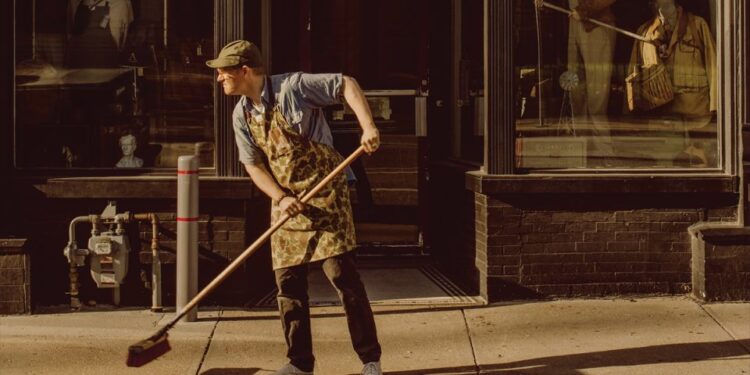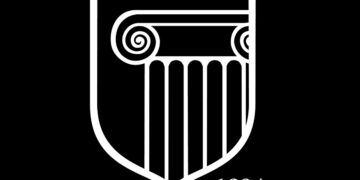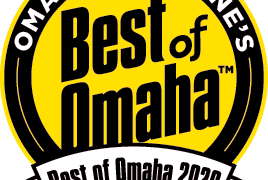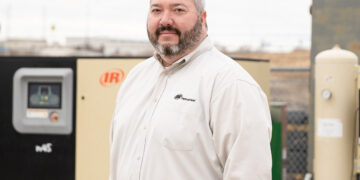Even the Great Depression couldn’t keep some entrepreneurs down. Enduring companies and brands including Sony Music, Westin Hotels, Allstate, Rubbermaid, Ray-Ban, and Tyson Foods all originated during the economic downturn in the early 20th century. Similarly, the period of economic recession that began a decade ago didn’t stop several local entrepreneurs from starting businesses during a time when numerous companies were floundering or failing.
Kirt Jones was already a business owner when 2008 began. He had started Jones Construction in 2005 under a strong market climate, which may have helped him achieve financial stability, but, ironically, did not foster rapid growth.
“[That] made it very hard to find lots to build houses on in good developments. Simultaneously, banks were not interested in working with a new company to provide construction lending,” he says.
He started Castle Brook Builders in 2008 not knowing a market crash was around the corner.
“The change to Castle Brook Builders was for marketing purposes. We wanted to bring brand awareness to the company by developing name recognition to the Omaha area. We started before the market crash, but we accelerated growth during the downturn,” he says. “When the market did slow down, banks paid more attention to our strong financial position and land developers were willing to listen to my proposals on multiple lot purchases. I developed a successful business model from these long-term lot purchase agreements, providing higher profitability for Castle Brook Builders.”
The timing was advantageous but Jones says other factors also contributed to his success during a time when so many of his competitors struggled.
“I have a financial background, so developing long-term strategies and partnerships allowed me to rise above the competition with stronger sales and profits. We invested some of this profit into creating and continuing our brand awareness,” he explains.
Having been through the economic downturn, he says he is ready now for anything that happens in the next 10 years and beyond.
“Reputation is very important in the Omaha market. We have worked very hard to establish strong relationships and partnerships with other respectable homebuilders and land developers in the area. This will provide CBB a very strong competitive advantage far into the future,” he says.
Chris Hughes’ IT job was eliminated in 2009 as a result of the economic downturn, and he needed to create another source of income after landing a job that brought in about one-third of the salary he once commanded.
“I was obviously looking for any other avenue, and I was making tote [bags] in my basement to sell on Etsy,” he says. “That started to take off for me, so this decision to launch Artifact was partly due to timing and largely due to necessity…I’m pretty risk-averse in general and the idea of entrepreneurship—it would not have been my first pick.”
The well-crafted bags he sold on Etsy for extra cash became a big hit, and he officially launched Artifact Bags in 2010, when the economy was slowly starting to turn. It is thriving today. Looking back, Hughes says that, although he may have felt then like circumstances forced his hand a bit, waiting for the economy to turn around would have actually been a misstep.
“I think it’s becoming more and more difficult to do what I’m doing. The market is more saturated with people who are doing similar products or business models to what I’m doing,” he says. “I was on the bleeding edge of it and there was a time, with e-commerce, where Google was at a point where I was able to really leverage my standing in Google search in a way that was more democratic and didn’t require as much capital as it would require now to pay for that space.”
The frustration he encountered in trying to find a new job turned out to be somewhat motivational, he adds.
“When you’re backed in a corner and you’re trying to tell people what you’re capable of, there comes a point when you give up and you demonstrate what you’re capable of, through entrepreneurship or just doing your own thing. And I think that it speaks more than just your own self-speculation about what you think you can do for some company,” he explains. “Everybody’s got an idea written down on a napkin somewhere, but execution is everything. I’ve met a lot of people along the way through the eight years of doing Artifact, and I hear tons of great ideas all the time, but they don’t mean anything. A great idea that is never executed is worse than an average one that someone works their butt off to try to get out there in the world.”
For more information, visit artifactbags.com and castlebrookbuildersomaha.com.
This article was printed in the August/September 2018 edition of B2B.














